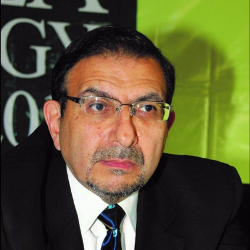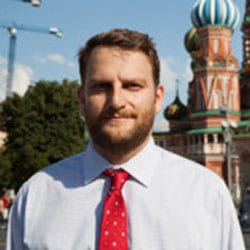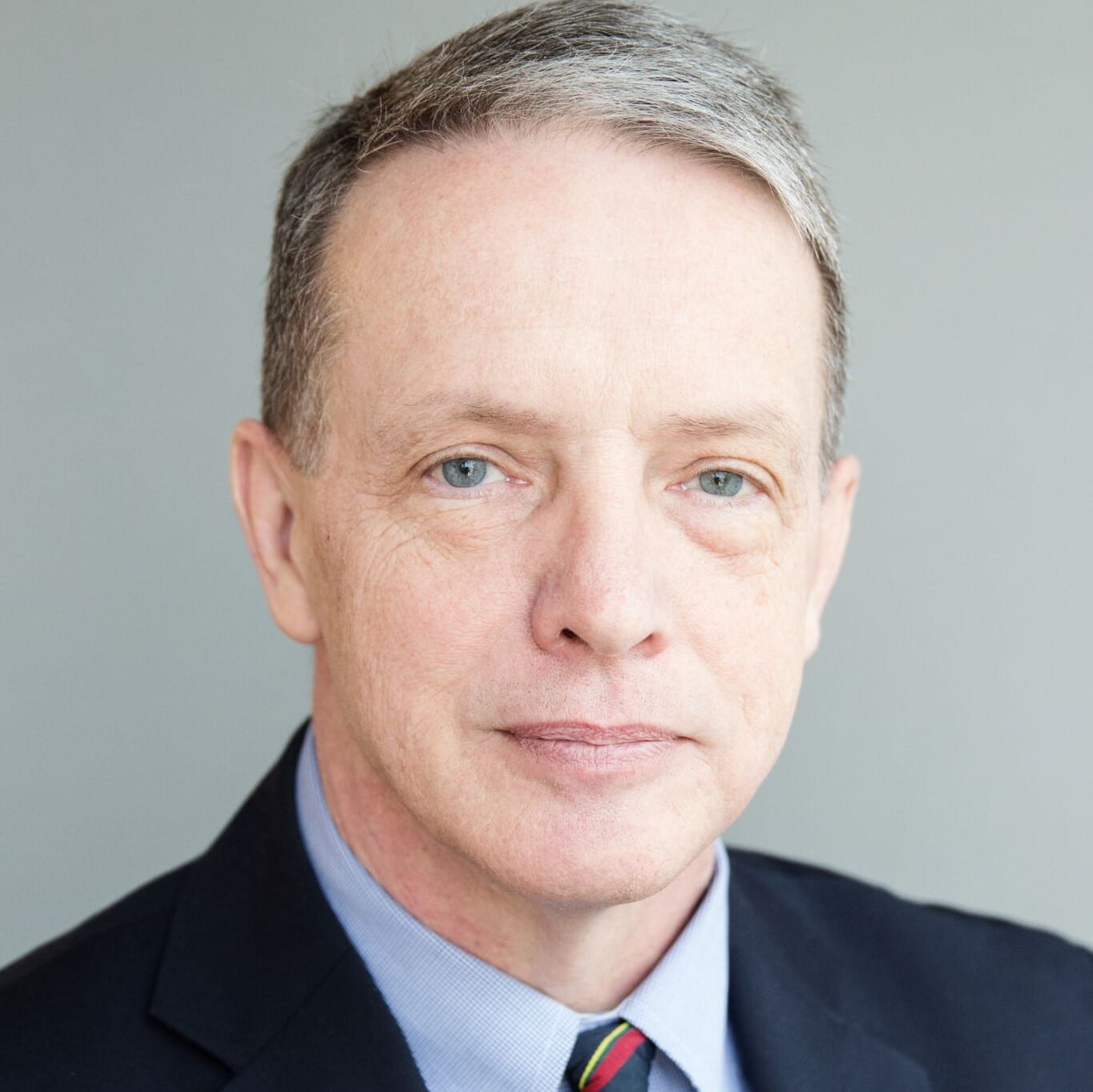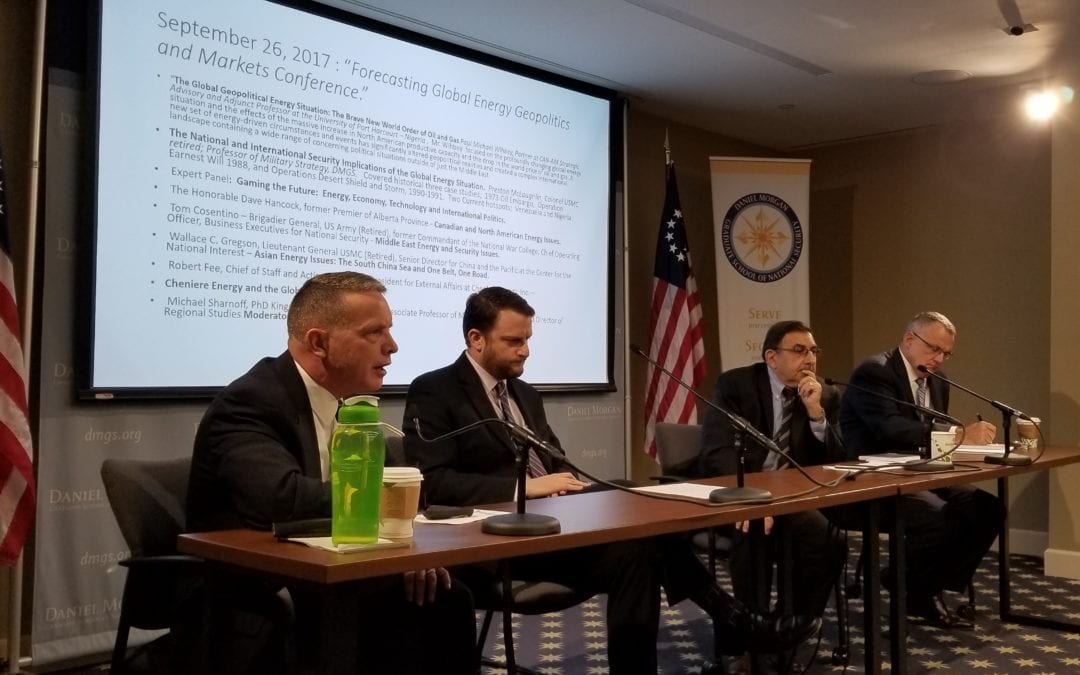National Security Lecture Series at DMGS
The Daniel Morgan Graduate School Lecture Series is specifically designed to bring together speakers with divergent opinions on national security with the goal of enabling the public to engage in robust and informed discussions. It has hosted some of the most distinguished and influential leaders, thinkers, and practitioners of the national security community. These members of the national security community have provided our students, faculty, and guests with first-rate analysis of some of the most pressing challenges of our time. Daniel Morgan Graduate School will continue to host speakers who can help prepare the next generation of leaders, scholars and, practitioners to develop actionable solutions to global and domestic security challenges.
Summary:
Daniel Morgan Graduate School of National Security (DMGS) was pleased to host a special panel on the changing energy geopolitics of Russia and the Middle East this Tuesday as part of our ongoing National Security Lecture Series. Panel members included Paul Michael Wihbey, partner at AN-AM Strategic Advisory and Adjunct Professor at the University of Port Harcourt; Tom Cosentino, Brigadier General, US Army (Retired), former Commandant of the National War College and Chief Operating Officer of Business Executives for National Security; and Yuval Weber, Ph.D, DMGS’s Kennan Institute Fellow.
Mr. Wihbey explained the reasons he believes Saudi Arabia has felt compelled to establish a strategic partnership with Russia. Based upon this strategic partnership between America’s key alley in the Arab and Muslim world and Russia, Mr. Wihbey argues, “In December, 2016, we come to the turning point, in my opinion, where you see the nexus of what I believe is a highly sophisticated Russian strategy using energy, diplomacy, and military means to achieve Russian dominance in the Middle Eastern region.” Dr. Weber provided valuable insight into Russia’s motivations in establishing this strategic partnership explaining that Putin needs to expand power projection abroad in order to justify his continued rule at home. General Consentino described the factors that he believes will result in a low-level covert fight between the U.S. and Iran.
Preston McLaughlin, Colonel, USMC (Retired) and Professor of Military Strategy at DMGS moderated the panel discussion that followed presenting various audience questions to the panel. Afterwards, DMGS students, faculty, and staff as well as visitors to our campus had the opportunity to network with Mr. Wihbey, Dr. Weber, and General Consetino while enjoying catered snacks and beverages.

Speaker
Paul Michael Wihbey is a Research Fellow, Geopolitics of Energy & Natural Resources at the Daniel Morgan Graduate School of National Security. He was born in the US and raised and educated in Montreal. He has honorably served both nations in various capacities, from leading a Canadian Parliamentary delegation to Lebanon, to energy related war-gaming lectures at the United States Marine Corps University, Command and Staff College, Quantico Virginia.

Speaker
Yuval Weber, Ph.D., is Daniel Morgan Graduate School’s inaugural DMGS-Kennan Institute fellow. Most recently, Dr. Weber taught at Harvard University, where he was a Visiting Assistant Professor in the Department on Government and a Kathryn W. and Shelby Cullom Davis Research Fellow at the Davis Center for Russian and Eurasian Studies. His work has appeared in Problems of Post-Communism, International Studies Review, Survival, Cold War Studies, Orbis, and the Washington Post.
Author

Moderator
Colonel Preston McLaughlin was appointed an Associate Professor of National Security to the Daniel Morgan Graduate School of National Security in August 2017. He also currently serves as the Chief Operating Officer for Aquilae Consulting Services, LLC. He previously served as the Deputy Program Manager for Operations and Support in the System High Corporation Support Team at the Defense Advanced Research Projects Agency (DARPA)’s Security & Intelligence Directorate from 2012-2016.

